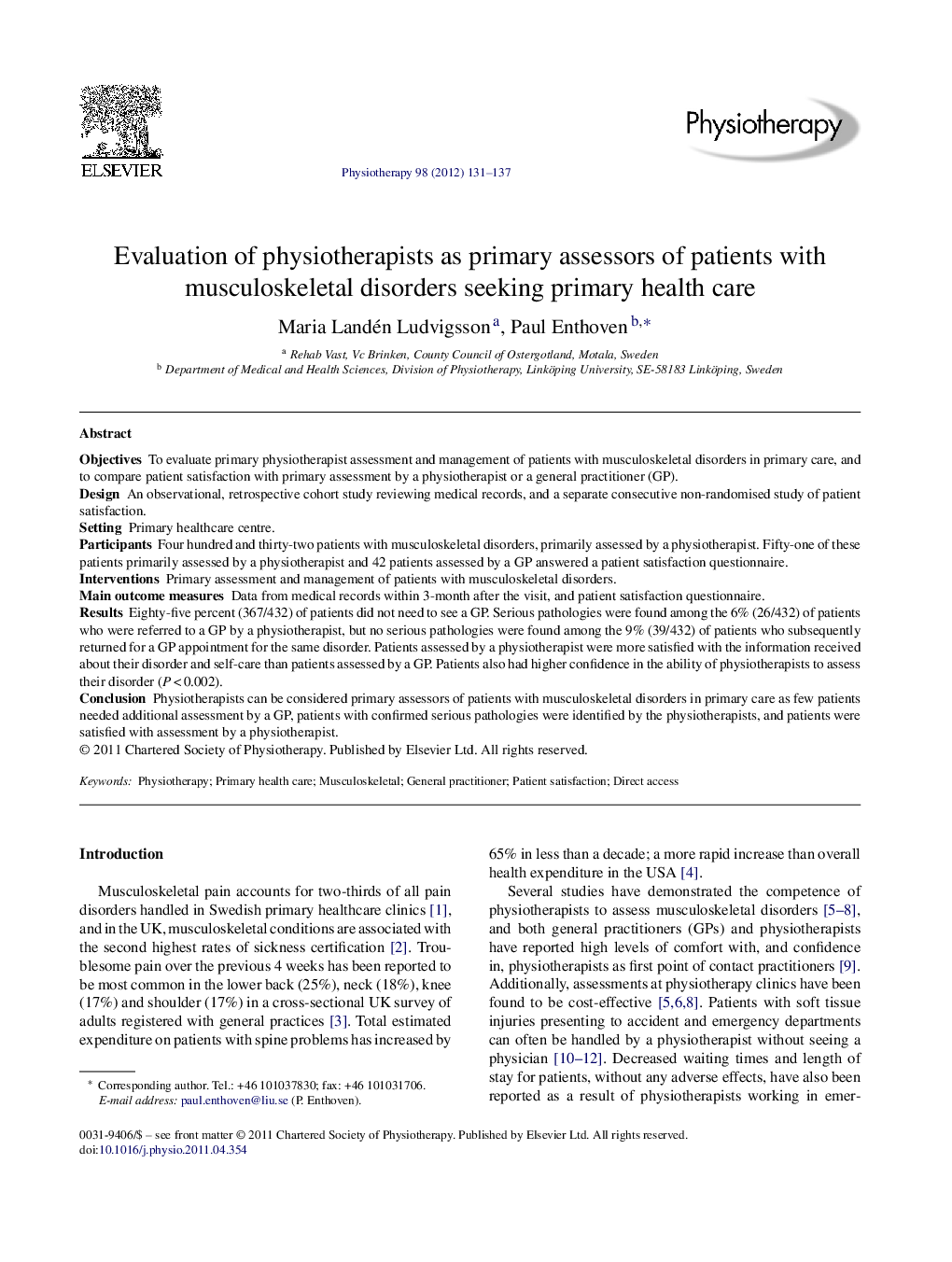| Article ID | Journal | Published Year | Pages | File Type |
|---|---|---|---|---|
| 2627286 | Physiotherapy | 2012 | 7 Pages |
ObjectivesTo evaluate primary physiotherapist assessment and management of patients with musculoskeletal disorders in primary care, and to compare patient satisfaction with primary assessment by a physiotherapist or a general practitioner (GP).DesignAn observational, retrospective cohort study reviewing medical records, and a separate consecutive non-randomised study of patient satisfaction.SettingPrimary healthcare centre.ParticipantsFour hundred and thirty-two patients with musculoskeletal disorders, primarily assessed by a physiotherapist. Fifty-one of these patients primarily assessed by a physiotherapist and 42 patients assessed by a GP answered a patient satisfaction questionnaire.InterventionsPrimary assessment and management of patients with musculoskeletal disorders.Main outcome measuresData from medical records within 3-month after the visit, and patient satisfaction questionnaire.ResultsEighty-five percent (367/432) of patients did not need to see a GP. Serious pathologies were found among the 6% (26/432) of patients who were referred to a GP by a physiotherapist, but no serious pathologies were found among the 9% (39/432) of patients who subsequently returned for a GP appointment for the same disorder. Patients assessed by a physiotherapist were more satisfied with the information received about their disorder and self-care than patients assessed by a GP. Patients also had higher confidence in the ability of physiotherapists to assess their disorder (P < 0.002).ConclusionPhysiotherapists can be considered primary assessors of patients with musculoskeletal disorders in primary care as few patients needed additional assessment by a GP, patients with confirmed serious pathologies were identified by the physiotherapists, and patients were satisfied with assessment by a physiotherapist.
